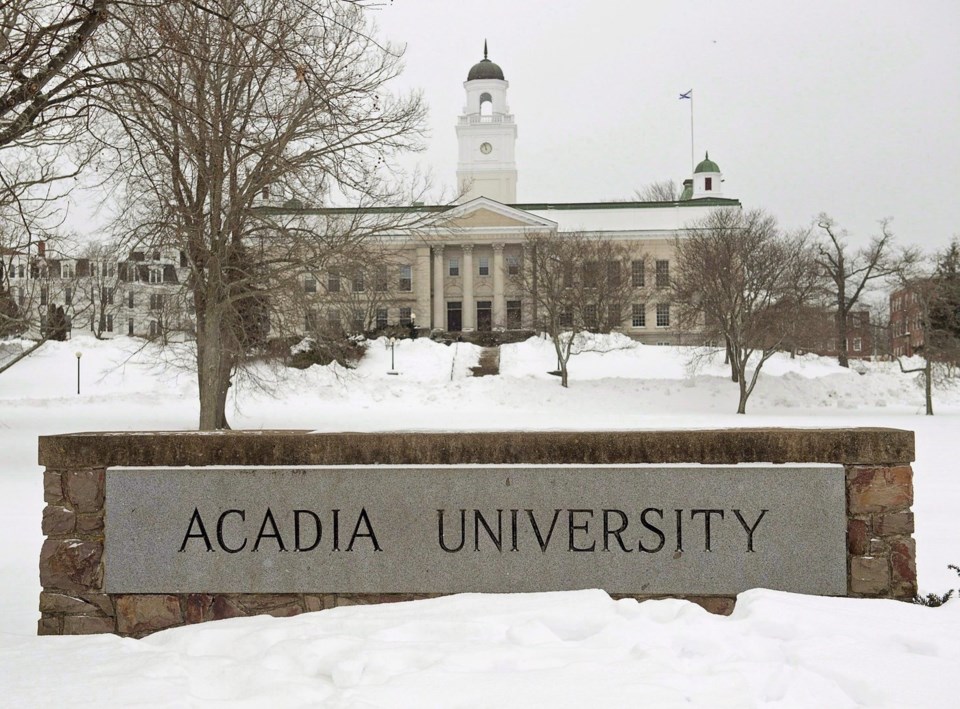HALIFAX — Nova Scotia’s 10 universities have signed new two-year conditional funding agreements with the provincial government that include an undergraduate tuition freeze and an increase in operating grants.
Announced Friday, the deals provide universities with a two per cent increase in their operating grants in each of the next two years, although a portion will be held back until universities hit specific performance targets.
Advanced Education Minister Brendan Maguire said the tuition freeze applies to Nova Scotia undergraduate students only, not to students from other provinces, or to graduate or international students. “We have some of the highest tuitions in the country for undergraduate degrees and we wanted to make sure that there is stability,” Maguire told reporters.
The minister said he doesn’t think the freeze will lead to universities jacking up prices for out-of-province students, even though there has been a dip in international enrolment.
“I expect that the universities aren’t going to price themselves out (of the market),” Maguire said. “Obviously they are going to look at their own finances and decide on a university-by-university basis.”
The freeze will provide some relief for students who faced the highest average undergraduate tuition rate in the country at $9,762 in 2024-25, according to Statistics Canada.
G. Saleski, executive director of Students Nova Scotia, which represents 20,000 students at four universities, welcomed the freeze for domestic enrolment, saying it had been recommended by the organization.
“It is a big win for Nova Scotia students to be able to study in their home province at a more affordable rate,” said Saleski, who said the two-per-cent operating increase was not enough and would strain schools already looking at budget deficits. Saleski said that could mean cuts to programs and campus services.
The total operational funding increase to the 10 universities is $7.7 million for the 2025-26 fiscal year and $7.8 million for 2026-27. The funding agreements replace one-year deals with universities that expired on March 31.
Peter Halpin, executive director of the Association of Atlantic Universities, said that while universities are glad to receive an increase to their operating grants, the two per cent figure is still below the annual rate of inflation.
“It will not offset the significant loss of international students in 2024 and an anticipated loss in 2025,” Halpin said. “We remain concerned about the lack of predictable capital investment to help universities address accumulated deferred maintenance.”
He said it’s still unknown what effect the tuition freeze will have on overall revenue.
Under the deals, schools with health-related programs will have to hit an average enrolment rate in those programs of at least 97 per cent to get their full funding allotments. Funding is also contingent on universities making housing available for at least 15 per cent of their student bodies, and ensuring that their on-campus housing vacancy rate is no higher than five per cent.
Lindsay Wadden, senior executive director at the Department of Advanced Education, said all of the province’s universities met the conditions placed on their funding last year and received full allocations.
Still, the new agreements allow the province to hold back a total of $54 million for all institutions in the first year and about $56 million in the second until conditions are met, Wadden said.
The government posted all 10 agreements online later on Friday.
As an example, Acadia University in Wolfville, N.S., is to get more than $34.6 million for operating expenses this fiscal year and over $35.3 million next year. The province is holding back over $1 million this fiscal year until the school hits 97 per cent enrolment for its health programs, and more than $678,000 until the school complies with the goals of its strategic action plan.
Meanwhile, in fiscal 2026-27, more than $2 million will be held back until Acadia completes its academic program review and hits the five-per-cent vacancy rate target for student housing.
The agreements follow the recent passage of a law that gives the government more oversight over universities and allows it to tie funding to economic and social priorities.
This report by The Canadian Press was first published April 25, 2025.
Keith Doucette, The Canadian Press




